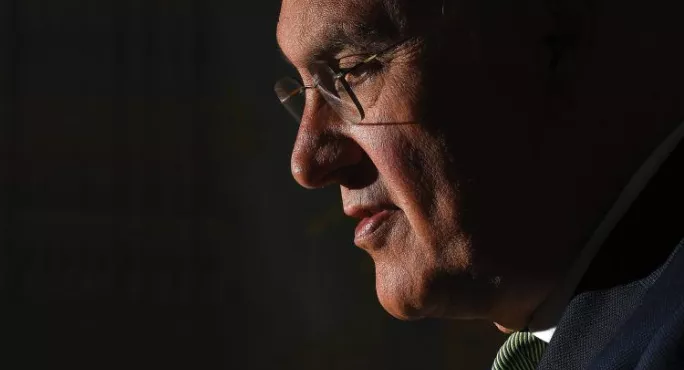- Home
- Wilshaw: FE needs ‘big political beast’ in charge
Wilshaw: FE needs ‘big political beast’ in charge

The government should take action to improve college provision and appoint a “big political beast” to be in charge of skills, former Ofsted chief inspector Sir Michael Wilshaw has said.
Speaking at today’s Schools and Academies Show, Sir Michael said that in order to better support young people who need to catch up after performing poorly in primary and secondary school education, “good policymaking would do something about the poor quality of further education provision, where most of our poor youngsters who haven’t achieved benchmark GCSEs go at the age of 16”.
He said more 16-year-olds went to college than to school sixth forms, and many of those “needed to catch up”. “In other words, these youngsters need hope, but instead too many of them get neglected in what has for far too long been known as the Cinderella service of our education system. A service which sadly has been starved of resources for 20 years and on which the political and public spotlight rarely falls in the way it always falls on schools.”
Wilshaw: Covid sent me back to teaching after 15 years
Long read: 'The beginning of serious pride in the UK's FE sector'
News: College funding increases set to be 'eroded' by Covid
The former Ofsted chief inspector highlighted the drop in funding for post-16 students in recent years, and the disparities in the funding per post-18 student received by universities compared with that received by colleges.
Employers 'believe colleges are not fit for purpose'
He said: “No wonder then that colleges are finding it difficult to recruit and retain specialist staff, particularly in English and maths. Staff are paid on average £7,000 less than a secondary school teacher. As a consequence, around 80 per cent of students in FE colleges fail to achieve at 18 the benchmark grade in English and maths that they should have achieved two years earlier."
He added: “Without the grades, what chance have these youngsters got to progress to A level, to the new T levels or to a high-quality apprenticeship? And because colleges lose money if students don’t complete a course of study, and often get criticised by Ofsted if they don’t complete, too many colleges enter students on to less demanding programmes which may be popular but really don’t provide them with the skills employers want and need for the emerging economies.
"On top of this, further education colleges struggle to find the necessary capital to equip their workshops and labs with the engineering and digital equipment they so desperately need.
“The government says it is committed to restoring the financial health of further education, but is it too little and too late? It should worry that many employers, large and small, have become disenchanted and believe that further education colleges are not fit for purpose and that they don’t produce the skilled workers that our 21-st century economy needs and will need in greater numbers after we leave the European Union.”
Sir Michael quoted the 5% Club – an employer organisation in which members aspire to achieve 5 per cent of their workforce in earn-and-learn positions, including apprenticeships – as saying that it acknowledged the serious financial difficulties that the FE colleges were facing, but members, large and small, were concerned that standards were “simply not high enough”. “As a result, too many learners do not come out with the relevant skills for employment. Too many vocational courses are of low quality, where teaching is also at too low a level,” he said.
Sir Michael added: “In short, this vital sector of our education service needs better funding, but also much more political energy and focus. A succession of junior ministers for skills at the Department for Education is not going to provide what is needed – that is a heavy political statement. A [Michael] Heseltine-type, big political beast at the top of government needs to be appointed to take the whole issue of skills seriously, and work across government departments and employer organisations to bring about valuable change.”
David Hughes, chief executive of the Association of Colleges, said: I think it is said that Sir Michael is at least two years late. It is also sad that he doesn't feel he can help us continue to raise the profile of colleges so they get the resource they need. He is right, however, that colleges haven't had the support they deserve."
Keep reading for just £1 per month
You've reached your limit of free articles this month. Subscribe for £1 per month for three months and get:
- Unlimited access to all Tes magazine content
- Exclusive subscriber-only stories
- Award-winning email newsletters



